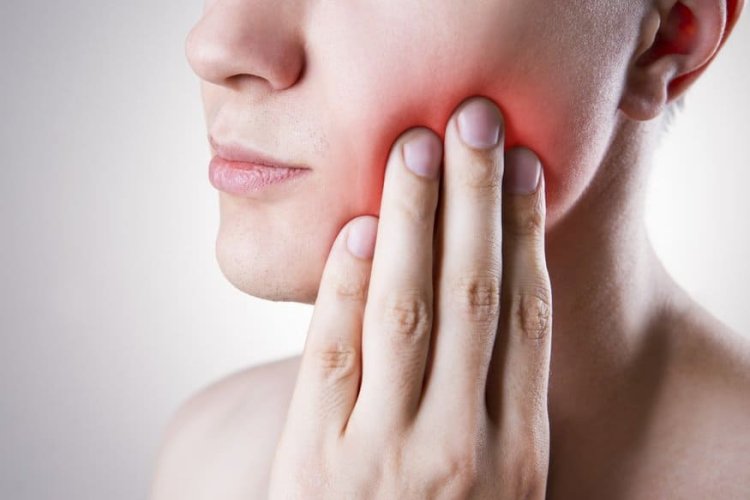Some Most Common Causes Of Tooth Pain

Tooth pain can be a frustrating and uncomfortable experience. It can make it difficult to eat, sleep, and focus on daily tasks. Tooth pain can have a variety of causes, some of which may require immediate attention from a dental professional. In this blog, we'll discuss some of the most common causes of tooth pain. If you know them, you can treat yourself in some emergencies. However, you should always seek a general dentist for all dental issues.
Top Causes Of Tooth Pain
- Tooth decay: Tooth decay is one of the most common causes of tooth pain. It occurs when bacteria in your mouth produce acid that erodes your tooth enamel. This can lead to cavities and tooth sensitivity. If left untreated, tooth decay can progress and lead to infection, which can cause severe pain and require emergency dental care.
- Gum disease: Gum disease, also known as periodontal disease, is a condition that occurs when the gums become infected and inflamed. This can cause pain and discomfort, especially when eating or brushing your teeth. If left untreated, gum disease can progress and lead to tooth loss.
- Tooth abscess: A tooth abscess is a pocket of pus that forms in or around a tooth. It is usually caused by an infection that has spread from the root of the tooth to the surrounding tissues. An abscess can cause severe pain and swelling and may require immediate dental treatment to prevent further complications.
- Cracked or broken teeth: A cracked or broken tooth can cause pain and sensitivity, especially when eating or drinking. If the crack or break is deep enough, it can expose the sensitive inner layers of the tooth, which can cause pain and discomfort.
- Teeth grinding: Teeth grinding, also known as bruxism, is a condition where a person grinds their teeth or clenches their jaw while they sleep. This can cause tooth pain, jaw pain, and headaches.
- Impacted wisdom teeth: Wisdom teeth, also known as third molars, are the last set of teeth to emerge in the mouth. If they don't have enough space to grow, they can become impacted, or stuck, in the jaw. This can cause pain and discomfort and may require extraction to prevent further complications.
- Dental procedures: Dental procedures such as fillings, root canals, and extractions can cause pain and sensitivity for a short period of time after the procedure. This is usually temporary and can be managed with pain medication and good oral hygiene habits.
If you're experiencing tooth pain, it's important to seek the advice of a dental professional. They can diagnose the cause of your pain and recommend the appropriate treatment to alleviate your discomfort. In the meantime, practising good oral hygiene habits such as brushing and flossing regularly, and avoiding sugary and acidic foods can help prevent tooth decay and gum disease, which are common causes of tooth pain.
Tips To Maintain Healthy Teeth And Prevent Pain
- Brush twice a day: Brushing your teeth twice a day is one of the most important things you can do to maintain healthy teeth. Use fluoride toothpaste and a soft-bristled brush to gently clean your teeth and gums. Make sure to brush for at least two minutes each time.
- Floss daily: Flossing is another important part of good oral hygiene. It helps to remove food particles and plaque from between your teeth and along the gum line. Use about 18 inches of floss and gently slide it between your teeth, using a back-and-forth motion. Be sure to floss all of your teeth, including the back molars.
- Use mouthwash: Mouthwash can help to kill bacteria in your mouth, freshen your breath, and strengthen your teeth. Look for a mouthwash that contains fluoride, which can help to strengthen tooth enamel and prevent tooth decay.
- Limit sugary and acidic foods: Sugary and acidic foods can contribute to tooth decay and erosion. Limit your intake of sugary foods and drinks, and choose healthier options such as fresh fruits and vegetables. If you do indulge in sugary or acidic foods, rinse your mouth with water afterwards to help wash away any lingering sugars or acids.
- Quit smoking: Smoking can cause tooth staining, bad breath, and gum disease. It also increases the risk of oral cancer. If you smoke, quitting is one of the best things you can do for your oral and overall health.
- Drink plenty of water: Drinking plenty of water can help to rinse away food particles and bacteria in your mouth. It can also help to prevent dry mouth, which can contribute to tooth decay and bad breath.
Conclusion
Regular dental check-ups and cleanings are important for maintaining healthy teeth. An experienced dental team can detect and treat any dental problems before they become more serious. They can also provide advice on good oral hygiene habits and recommend treatments such as fluoride treatments or sealants to help prevent tooth decay. Good oral health is associated with your facial look and smiles that no one wants to degrade. You will surely find these useful in maintaining good oral health and preventing tooth pain.
















